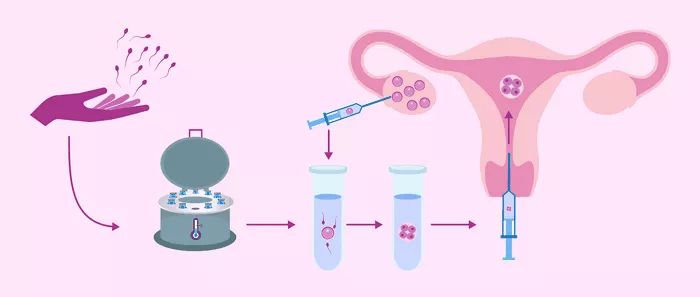Human Immunodeficiency Virus (HIV), a chronic infection that primarily weakens the immune system, has far-reaching effects beyond immune function, including significant impacts on fertility in both men and women. Assisted reproductive technologies (ART), particularly In-Vitro Fertilization (IVF), have emerged as a transformative solution, enabling HIV-positive individuals and couples to achieve their dreams of parenthood. Dr. Nishi Singh, Head of Fertility at PRIME IVF, provides insights into how HIV affects fertility and the role IVF plays in overcoming these challenges.
HIV, as defined by the World Health Organization (WHO), attacks white blood cells, leading to immune system dysfunction. In advanced stages, it can develop into Acquired Immunodeficiency Syndrome (AIDS), making the body vulnerable to infections and certain cancers. Beyond immune compromise, HIV indirectly affects fertility through systemic complications like hormonal imbalances, nutritional deficiencies, and chronic inflammation.
In men, HIV can impair fertility by damaging the reproductive system, reducing sperm count and motility—key factors for conception. “HIV-infected males often experience lower testosterone levels, which can lead to low libido and erectile dysfunction,” explains Dr. Singh. Chronic inflammation caused by the virus may also damage the testes, further compromising sperm quality.
For women, the fertility challenges are multifaceted. Research shows that HIV-positive women have a 25-40% lower fertility rate compared to their HIV-negative counterparts. The virus can damage reproductive organs, including the ovaries and fallopian tubes, disrupting ovulation and fertilization. “HIV increases the risk of pelvic inflammatory disease, leading to scarring and potential blockage of fallopian tubes,” notes Dr. Singh. Hormonal imbalances may also cause irregular menstrual cycles and premature ovarian failure, accelerating the decline in egg quality and quantity.
IVF has revolutionized fertility treatment for individuals facing infertility due to various causes, including HIV. The process involves fertilizing eggs and sperm outside the body, followed by the transfer of embryos into the uterus. This method provides effective solutions for the specific challenges posed by HIV.
For HIV-positive men with low sperm count or motility, techniques such as Intracytoplasmic Sperm Injection (ICSI) can enhance fertilization by directly injecting a single sperm cell into the egg. “Sperm washing, a technique that removes most of the HIV-laden seminal fluid, significantly reduces the risk of virus transmission to the partner or offspring,” says Dr. Singh. Sperm retrieval methods, including testicular extraction, further expand the options available.
HIV-positive women can benefit from IVF to address complications like blocked fallopian tubes, ovulatory disorders, or ovarian ablation. The procedure may include embryo freezing and later implantation, with the option to perform Pre-Implantation Genetic Testing (PGT) to screen for HIV and other genetic disorders before transferring embryos into the uterus.
For women whose health may be jeopardized by HIV-related complications during pregnancy, IVF offers the option of using a surrogate or gestational carrier. Fertilized embryos are implanted into a healthy surrogate, allowing for the safe birth of a child.
In addition, ongoing antiretroviral therapy (ART) during pregnancy minimizes the risk of transmitting the virus to the baby, ensuring the health of both mother and child. “These advancements make parenthood a realistic and safe possibility for HIV-positive individuals,” Dr. Singh highlights.
IVF and related assisted reproductive technologies have opened new doors for HIV-positive individuals and couples, enabling them to navigate fertility challenges and experience the joy of parenthood. With innovative techniques like ICSI, sperm washing, and PGT, as well as the use of surrogates when necessary, these procedures not only address infertility but also significantly reduce the risks of HIV transmission, offering a path to safe and fulfilling family life.
Related topics:
Chen Jin: 20 Years No Rice, No Marriage or Kids
Advancements in Fertility: Piezo-Icsi Offers Hope for Women Facing Age-Related Fertility Challenges

























